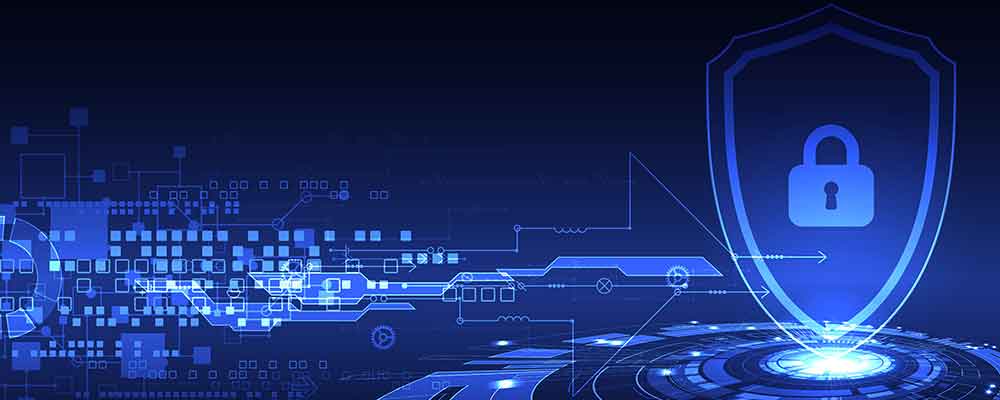Welcome to the unluckiest day of the year!
Well, supposedly it’s unlucky.
Superstition says that Friday the 13th is just as bad for you as walking under a ladder, breaking a mirror or crossing paths with a black cat.
I can’t say that I buy into the idea of bad luck when it comes to Friday the 13th and all the other stories. But then I’m also the type to prepare against bad things happening.
I’m the person who packs a spare change of clothes in my carry-on when I’m traveling in case the airline loses my luggage.
I’m the person who always lines up an alternate route to a location in case there’s an accident backing up traffic.
I’m the person who always had a quarter secretly stashed in a keychain in case I had to make an emergency phone call. You remember, in the days before cellphones.
While a number of new advances have made our lives easier, they’ve also added in a new layer of potential “bad luck” that requires a different kind of planning. And that planning is exploding into an industry of opportunity…
Connected and Vulnerable
Gone are the days when your big fear of bad luck was a flat tire on the way to work or spilling coffee down your shirt minutes before a big meeting with the CEO.
Now there’s the fear of opening your bank account or getting a credit report and finding out that you’ve been hacked.
Or that your company has been hacked.
As we move into a world where more pieces of our life are connected via the internet (the so-called Internet of Things), we are facing an increase in vulnerabilities that need to be addressed through cybersecurity.
And it’s not just the obvious targets such as banks and retailers that are vulnerable to cyberattacks. Jeff Yastine recently talked about how the shipping industry represents a huge target for criminals who could significantly slow or shut down the delivery of goods.
One sector that we need to address soon is the energy sector.
A Powerful Shutdown
We have made leaps and bounds over the past decade in digitizing and revolutionizing our sources of energy. We’ve moved away from the use of coal and toward cleaner sources of energy such as solar, wind and geothermal.
In fact, earlier this year, the U.S. Energy Information Administration reported that for the first time since 1984, renewable energy provided more power than nuclear in March and April of this year. Also, more than 60% of all utility-scale electricity that came online in 2016 was either wind or solar power.
But many companies haven’t taken adequate steps to protect themselves from cyberattacks.
The chief technology officer at Lightsource Labs, Menelaos Ioannidis, said that while he’s not aware of any attacks yet on power companies, he believes “it’s not difficult to hack the system.”
A Dutch researcher located 17 solar inverter vulnerabilities that hackers could use to control energy output from plants.
That’s why steps need to be taken now to plan against “bad luck.”
Siemens Gamesa Renewable Energy, a wind turbine maker, expanded the role of its chief information officer, Alan Feeley, to include chief cybersecurity officer.
Berkeley Lab reported that it plans to begin a project to close cybervulnerabilities in rooftop solar panels integrated into the grid.
And that’s just the tip of the iceberg.
A Shift in Spending
Every industry is vulnerable to potential cyberattacks if it is using computers. That means more companies will be reaching out to the experts who specialize in protecting companies from attacks.
This industry is set to explode — with estimates pegging that the cybersecurity market will reach $1 trillion within a matter of years.
As companies finally take the threat of attacks seriously, they will be investing heavily in the weapons to protect themselves. And that means big profits for the companies making those cybersecurity weapons.
In fact, Paul has identified a new company that he plans to add to his True Momentum service next week. (Click here to learn more about this great opportunity before we close the doors.)
A Personal Cybersecurity Solution
More groups are spreading the word, trying to improve education to close the gaps.
The governor of Hawaii announced that October is Cybersecurity Awareness Month. The state is offering free cybersecurity workshops all month to educate individuals and businesses on the various threats and steps they can take to protect themselves.
London officials have issued a call to the cybersecurity community to help educate small businesses about cybercrime and give practical advice.
On an individual level, you don’t have to spend millions and have an entire information technology department at your back to protect your private information and wealth.
But you do have to begin to take some steps on your own. That’s why Ted Bauman created his Privacy Code 2.0 special report. It provides practical, easy-to-understand advice on what you can do right now to protect yourself from the next cyberattack.
Don’t be a victim of “bad luck.”
Take some steps now to protect your private information and wealth.
It also doesn’t hurt to profit from those investing in their company’s cybersecurity.
Regards,

Jocelynn Smith
Sr. Managing Editor, Sovereign Investor Daily










